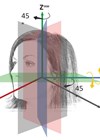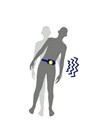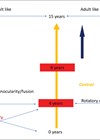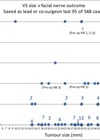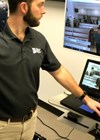Audiology features
Genetic foundations of Ménière’s disease: changing the game
Sydney researchers reveal genetic roots of Ménière’s disease. Familial patterns and gene discoveries highlight autosomal inheritance in rare cases, transforming molecular insights. Ménière’s disease (MD) is a chronic disorder of the inner ear defined by clinical criteria of episodic vertigo...
Balance and fall prevention in individuals with hearing impairments: clinical insights
Exploring how hearing loss heightens fall risk and how integrated audiologic, vestibular and technological strategies can transform balance care and prevention. Hearing impairment is one of the most common chronic health conditions worldwide, affecting an estimated 466 million people according...
Minimum stimulus strategy for the diagnosis of BPPV
Explore the innovative minimum stimulus strategy (MSS) for diagnosing benign paroxysmal positional vertigo (BPPV), enhancing accuracy while minimising patient discomfort. Benign paroxysmal positional vertigo (BPPV) is a common vestibular disorder where canalolithiasis or cupulolithiasis causes sudden episodes of vertigo, triggered...
Protheses for patients with severe bilateral vestibular loss
In February 2003, I met a patient with severe bilateral vestibular loss due to gentamicin toxicity, and I felt disheartened. Despite the fantastic diagnostic vestibular lab we had at Maastricht University Hospital, what could I truly offer her? She had...
The ups and downs of overseas research – the inner ear at altitude
Conducting research at extreme altitude presents unique challenges. This study of the inner ear at 5350m navigates setbacks in a quest for scientific discovery. Having completed a diploma in mountain medicine in my foundation years, I decided to undertake a...
Balance and vestibular disorders in children
Discover the world of paediatric vestibular assessment and management from the team at Alder Hey Children’s Hospital, which is revolutionising services in this field. Dizziness and balance problems generate significant morbidity in children of all age groups. Vestibular disorders are...
Current management of unilateral sporadic vestibular schwannoma
Vestibular schwannoma is the commonest tumour of the cerebellopontine angle (80%) and accounts for around 8% of all intracranial tumours. The commonest primary presenting symptoms are audio vestibular. Hearing health professionals are often the first contact for patients with potential symptoms of vestibular schwannoma, with the majority then being seen and diagnosed by otorhinolaryngologists.
Fall prevention in the elderly population
A fall in later life can have a catastrophic impact on a person’s quality of life. Lilian Felipe explains how falls prevention programmes and vestibular rehabilitation can help.
Microgravity: an extreme environment for otolith organs
Motion sickness in a car can be upsetting for all involved. Transferring this concept into a tiny cabin bound for space could have devastating consequences. Are the processes involved in ‘space motion sickness’ the same as motion sickness? How do...
Alternobaric vertigo: asymmetrical vestibular function due to asymmetrical middle ear pressures (Iron Man’s archenemy)
The Marvel Cinematic Universe could certainly be deemed an ‘extreme environment’ and yet very rarely do we see the Avenger’s popping to the clinic for a check-up. Hee-Young Kim has wondered how they cope with extreme pressure changes and discusses...
Neurological idiopathic disease: a shared journey for NASA and medicine
Whilst Southampton can’t really be described as an extreme environment, experiments carried out in the city have certainly been taken out of this world. Robert Marchbanks discusses one of the associations between Southampton, The International Space Station and tympanic membrane...
A multidisciplinary approach to the management of the adult balance - dizzy patient
Richard Gans and Kimberly Rutherford, renowned experts from The American Institute of Balance, give their team’s overview of the stages involved in reaching ‘diagnosis based strategies’. For the dizzy patient, this focuses on patient-centred clinical pathways for individualised therapy with...




